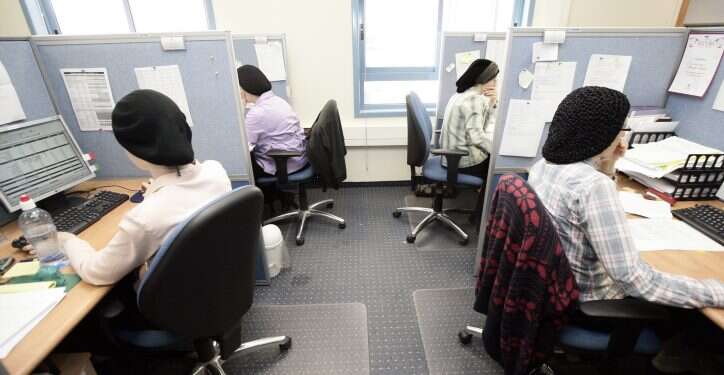Educated ultra-Orthodox women are powering a broad and rapid change in the standard of living in the haredi sector, the Israel Democracy Institute's annual report on the sector's social standing has found.
IDI's report showed that while the integration of ultra-Orthodox men into the workforce and academic institutions remains sluggish, haredi women are doing far better on both fronts.
Follow Israel Hayom on Facebook and Twitter
This has resulted in an increase in the income of haredi families, as shown by more vacations in Israel and abroad, and a considerable rise in car ownership.
Researchers Dr. Lee Cahaner and Dr. Gilad Malach were quoted by financial daily Globes as saying, "The processes of integration of haredi households continue, evidenced both by employment and income levels of women and by partial adoption of middle-class lifestyle characteristics. The integration of haredi men, however, particularly as far as employment and academic studies are concerned, has come to a halt, apparently because of an absence of economic incentives."
According to the IDI, in 2017, the average gross monthly income of haredi households grew by 10% to over 15,000 shekels ($4,300) This compares with a rise of just 5% for non-haredi households.
"The result is, first of all, a substantial fall in the rate of poverty as measured by per capita income, from 52% in 2013 to 43% in 2017. This is still severe, but the trend of improvement is dramatic," the report said.
IDI said that much of this change can be attributed to ultra-Orthodox women and it all starts with education.
The report noted that most haredi girls receive their high school education in religious seminaries and there is a steady rise in matriculation rates – from 31% in the 2008/09 school year to 51% in 2016/17.
There is also a growing number of haredi women who pursue higher education and in the past decade, the number of haredi women, studying for academic degrees has more than doubled to 8,400 (70%) of all haredi students in the 2018/19 academic year.
"The modernization of haredi society continues, and what is interesting is that haredi society itself is aware of the process," Malach told Globes. He further attributes the rise in the standard of living to the rise in earned income among haredi women, but also to greater state support, and to negative income tax for people on low incomes.




